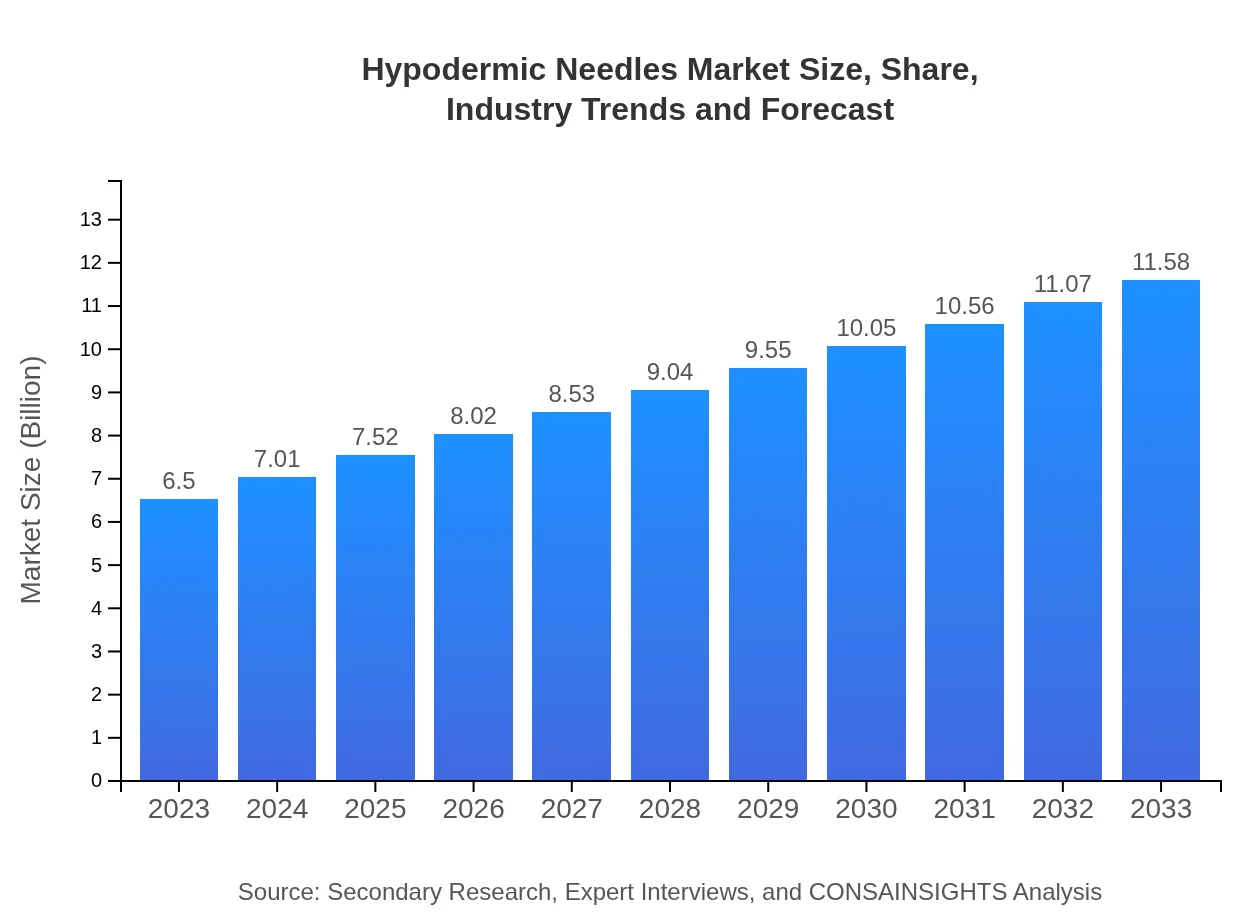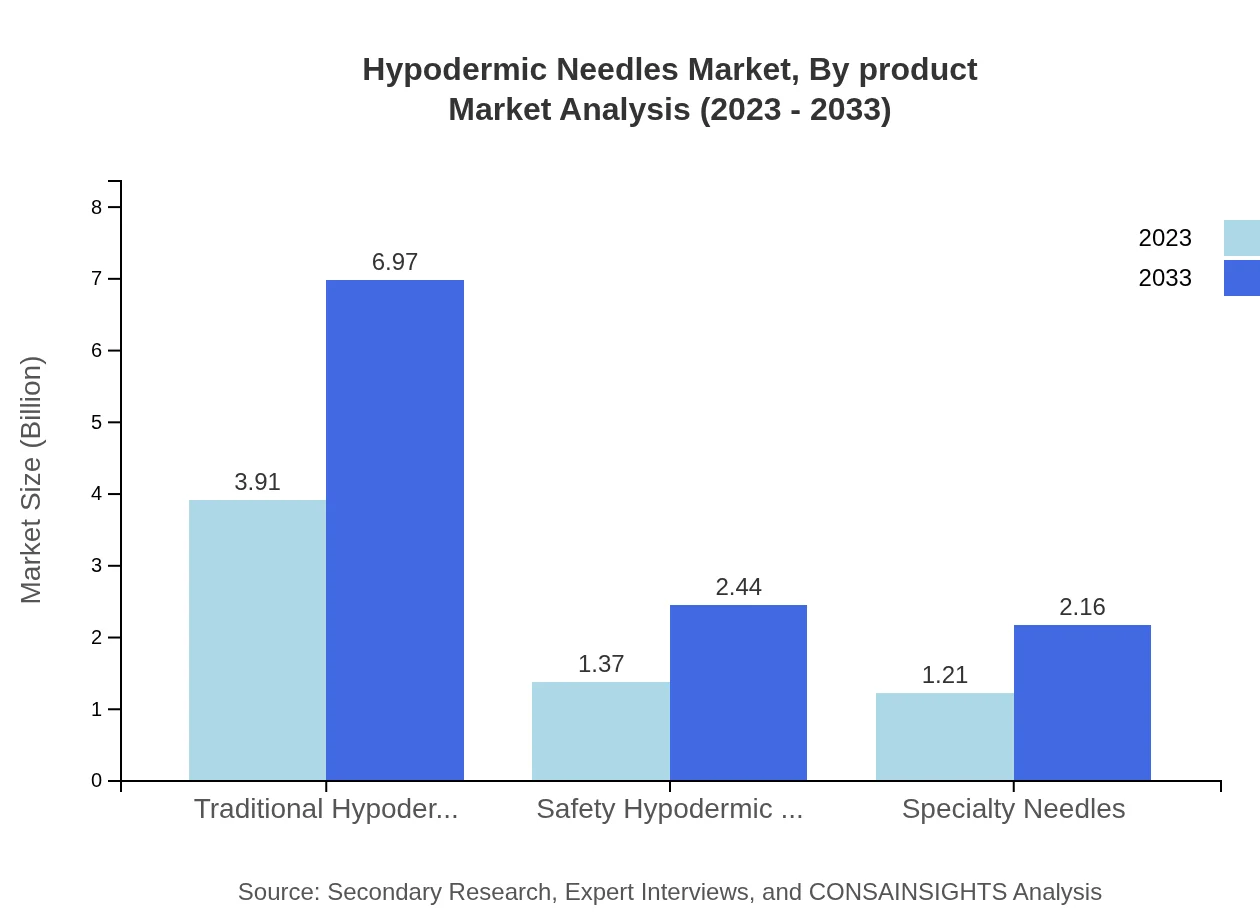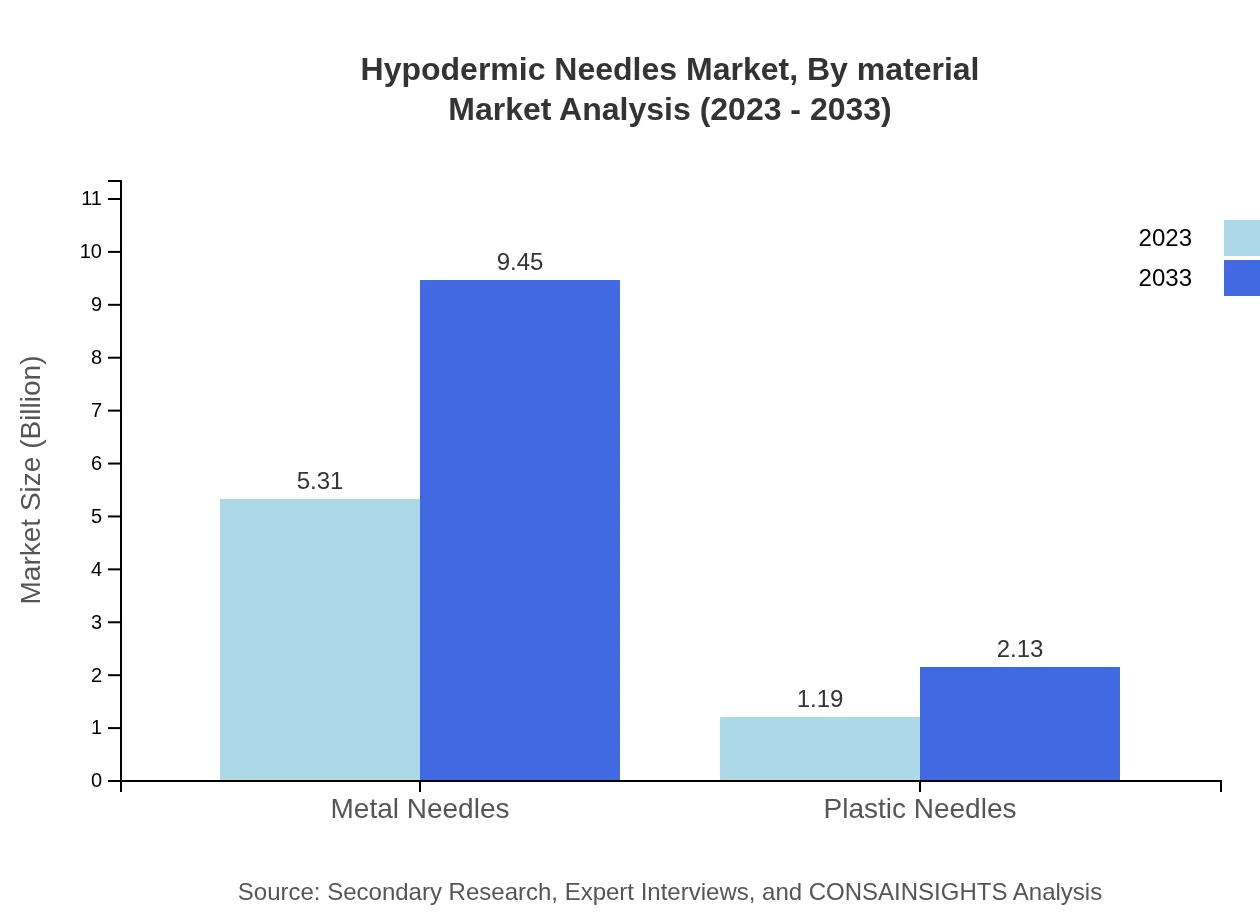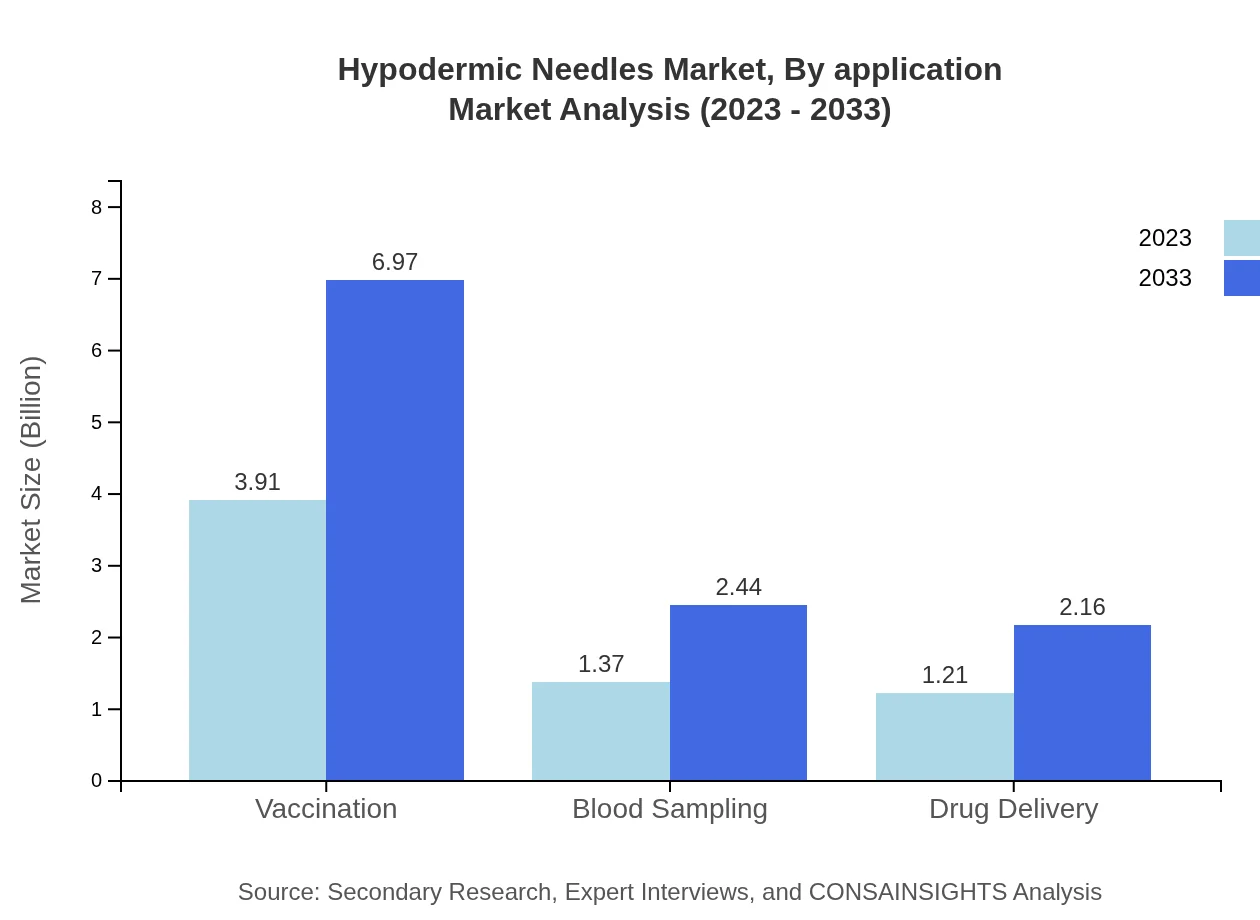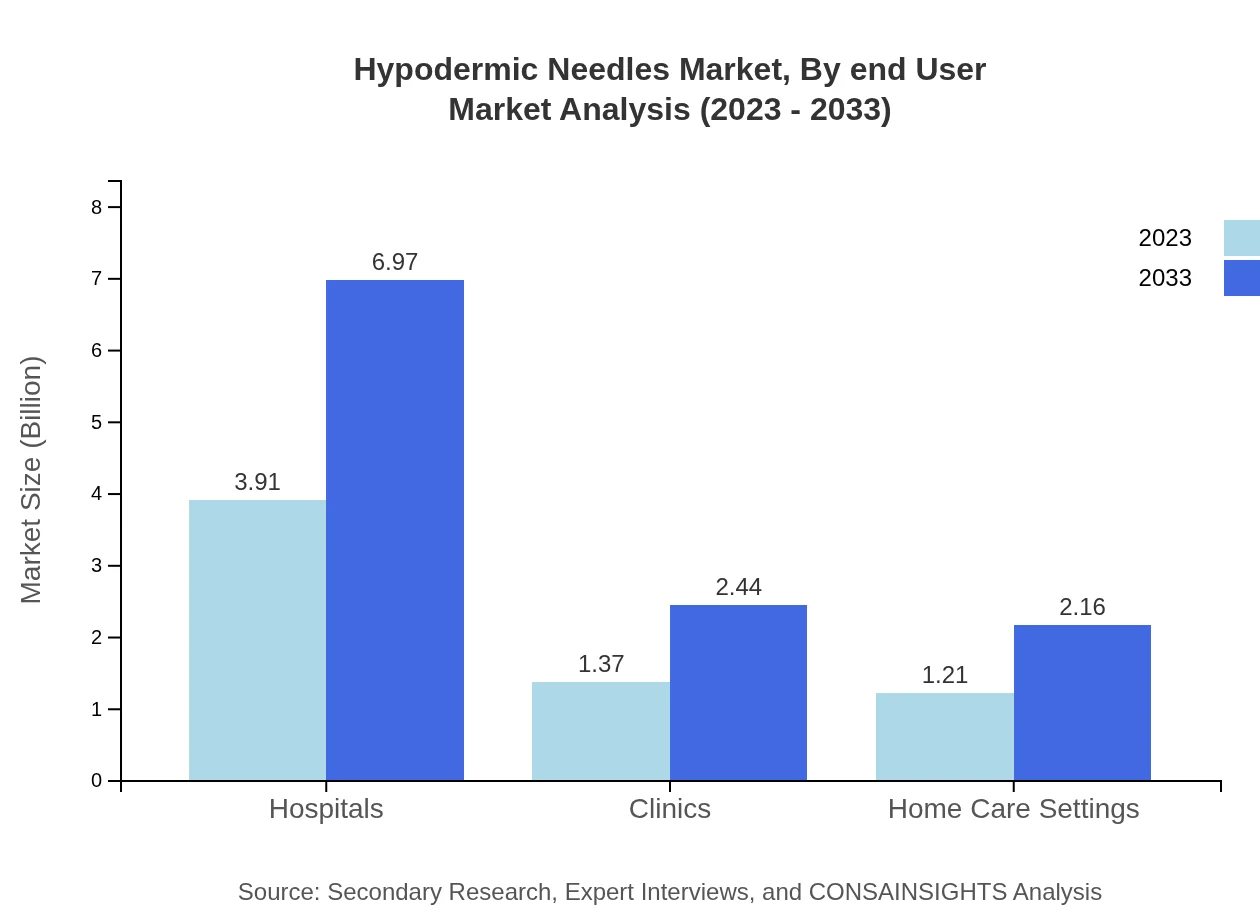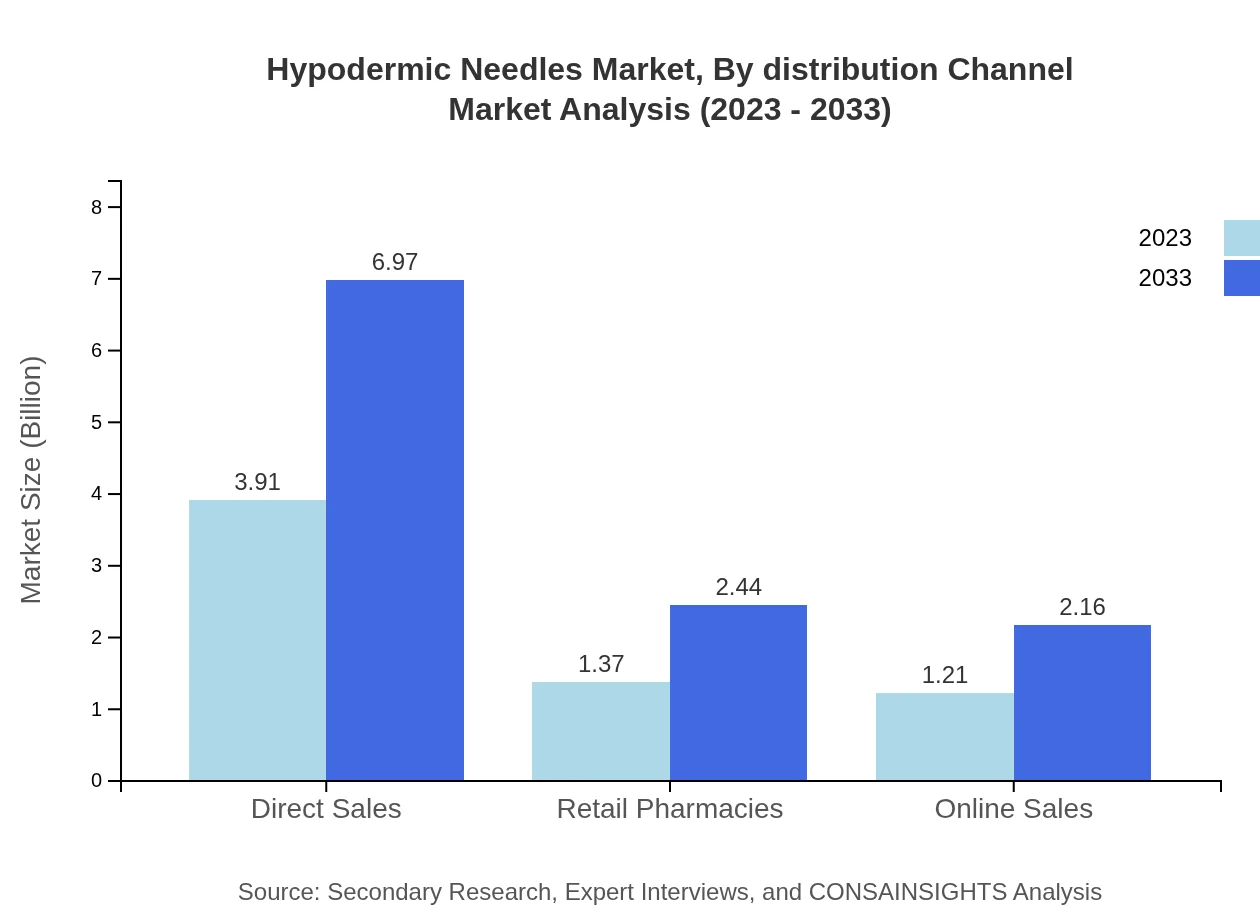Hypodermic Needles Market Report
Published Date: 31 January 2026 | Report Code: hypodermic-needles
Hypodermic Needles Market Size, Share, Industry Trends and Forecast to 2033
This report provides a comprehensive analysis of the Hypodermic Needles market, covering key insights including market trends, size, and growth forecasts from 2023 to 2033.
| Metric | Value |
|---|---|
| Study Period | 2023 - 2033 |
| 2023 Market Size | $6.50 Billion |
| CAGR (2023-2033) | 5.8% |
| 2033 Market Size | $11.58 Billion |
| Top Companies | Becton Dickinson and Company, Terumo Corporation, Medtronic plc, Nipro Corporation, Smiths Medical |
| Last Modified Date | 31 January 2026 |
Hypodermic Needles Market Overview
Customize Hypodermic Needles Market Report market research report
- ✔ Get in-depth analysis of Hypodermic Needles market size, growth, and forecasts.
- ✔ Understand Hypodermic Needles's regional dynamics and industry-specific trends.
- ✔ Identify potential applications, end-user demand, and growth segments in Hypodermic Needles
What is the Market Size & CAGR of Hypodermic Needles market in 2023?
Hypodermic Needles Industry Analysis
Hypodermic Needles Market Segmentation and Scope
Tell us your focus area and get a customized research report.
Hypodermic Needles Market Analysis Report by Region
Europe Hypodermic Needles Market Report:
In Europe, the market is expected to expand from $1.81 billion in 2023 to $3.22 billion by 2033, driven by widespread healthcare coverage, an aging population, and the introduction of stringent safety regulations.Asia Pacific Hypodermic Needles Market Report:
The Asia Pacific region is anticipated to witness robust growth, increasing from $1.26 billion in 2023 to $2.24 billion by 2033. The rising population coupled with expanding healthcare infrastructure and growing medical tourism in countries like India and China is propelling market development.North America Hypodermic Needles Market Report:
The North American market leads globally, projected to grow from $2.36 billion in 2023 to $4.21 billion by 2033. High healthcare spending, advanced medical technology, and a strong emphasis on safety standards are key factors fueling this growth.South America Hypodermic Needles Market Report:
In South America, the market size is expected to rise from $0.54 billion in 2023 to $0.96 billion in 2033. The growth drivers include increasing initiatives for vaccination and improved access to healthcare facilities in emerging economies.Middle East & Africa Hypodermic Needles Market Report:
The Middle East and Africa market will see a growth from $0.53 billion in 2023 to $0.94 billion by 2033. Factors such as increasing healthcare expenditure and rising incidences of diseases requiring regular treatments contribute to market advancements.Tell us your focus area and get a customized research report.
Hypodermic Needles Market Analysis By Product
The market is dominated by traditional hypodermic needles, projected to grow from $3.91 billion in 2023 to $6.97 billion by 2033, commanding a market share of 60.23%. Safety needles are also gaining traction, with an expected increase from $1.37 billion in 2023 to $2.44 billion by 2033, maintaining a share of 21.1%. Specialty needles account for a smaller portion, projected to rise from $1.21 billion to $2.16 billion, holding 18.67% market share.
Hypodermic Needles Market Analysis By Material
Metal needles dominate the market with a size of $5.31 billion in 2023, expected to reach $9.45 billion by 2033, accounting for 81.63% market share. Plastic needles represent a growing segment, estimated at $1.19 billion in 2023 and projected to reach $2.13 billion by 2033, capturing 18.37%.
Hypodermic Needles Market Analysis By Application
In the application segment, vaccination holds the largest market share, growing from $3.91 billion in 2023 to $6.97 billion by 2033 (60.23%). Blood sampling is also significant, estimated at $1.37 billion currently and expected to rise to $2.44 billion, while drug delivery is on track to expand from $1.21 billion to $2.16 billion.
Hypodermic Needles Market Analysis By End User
Hospitals are the primary end-users, with a current market size of $3.91 billion projected to grow to $6.97 billion by 2033 (60.23%). Clinics and home care settings also play important roles, presenting opportunities for incremental growth in their segments.
Hypodermic Needles Market Analysis By Distribution Channel
Direct sales dominate the distribution channels, generating $3.91 billion in 2023, with projections to reach $6.97 billion by 2033 (60.23%). Retail pharmacies and online sales follow, with significant growth metrics underscoring the changing landscape of distribution and accessibility.
Hypodermic Needles Market Trends and Future Forecast
Tell us your focus area and get a customized research report.
Global Market Leaders and Top Companies in Hypodermic Needles Industry
Becton Dickinson and Company:
A leading global medical technology company, specializing in the manufacturing of medical devices, including hypodermic needles and safety-engineered devices.Terumo Corporation:
A prominent player in medical devices, recognized for their innovation in safety needles and solutions to reduce needle stick injuries.Medtronic plc:
Global leader in medical technology, offering advanced hypodermic needle systems that enhance drug delivery efficacy.Nipro Corporation:
Engaged in producing high-quality hypodermic needles for a wide range of medical applications, contributing significantly to the industry.Smiths Medical:
Specialized in a variety of medical devices including needles, advancing healthcare through innovative and effective solutions.We're grateful to work with incredible clients.









FAQs
What is the market size of hypodermic needles?
The global hypodermic needles market is valued at approximately $6.5 billion in 2023, with a compound annual growth rate (CAGR) of 5.8%. This growth is driven by increasing medical needs and advances in needle technologies.
What are the key market players or companies in the hypodermic needles industry?
Key players in the hypodermic needles market include Becton, Dickinson and Company, Terumo Corporation, and Covidien. These companies are leading technological advancements and expanding market shares through innovative products and strategic partnerships.
What are the primary factors driving the growth in the hypodermic needles industry?
Growth drivers include rising incidences of chronic diseases, increasing vaccinations globally, and greater patient awareness about healthcare. Technological innovations in needle design and materials also significantly contribute to market expansion.
Which region is the fastest Growing in the hypodermic needles market?
The Asia-Pacific region is projected to be the fastest-growing market for hypodermic needles from 2023 to 2033, with market growth from $1.26 billion in 2023 to $2.24 billion in 2033, reflecting increasing healthcare investments.
Does ConsaInsights provide customized market report data for the hypodermic needles industry?
Yes, ConsaInsights offers customized market report data tailored to specific needs in the hypodermic needles industry, ensuring comprehensive insights based on unique market requirements and business objectives.
What deliverables can I expect from this hypodermic needles market research project?
Expect detailed market analysis reports, forecasts, segment insights, competitive analysis, and regional assessments. Deliverables also include actionable recommendations tailored to optimize market strategies.
What are the market trends of hypodermic needles?
Current market trends include the adoption of safety hypodermic needles, increasing preference for metal over plastic, and growth in direct sales channels. Overall, innovation and safety remain at the forefront of industry advancements.

